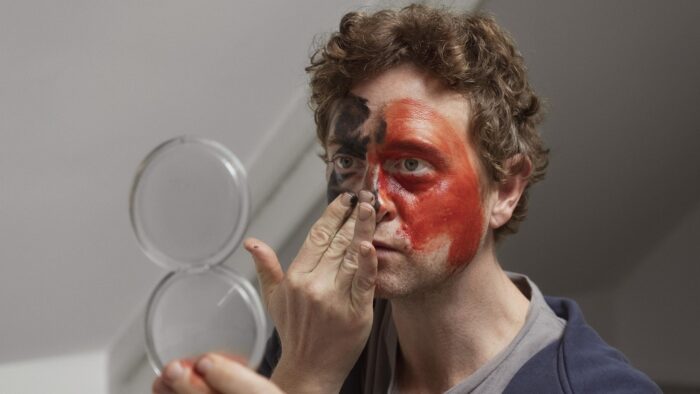Kalak, directed by Swedish filmmaker Isabella Eklöf as a Nordic co-production in Greenland, opens with a startling scene: an older man is sexually abusing a sleeping young man. But this is not sensationalist doom and gloom; instead, the effortlessly talented narrator sympathetically follows the adult life of Jan, who flees Copenhagen with his family to Greenland at the turn of the millennium, traumatised by a difficult relationship with his father.
As Kalak is based on an autobiographical novel by Kim Leine, who also contributed to the screenplay, even the most intense phases of the film can be expected to have counterparts in reality. Eklöf deals with things with honest frankness, but also with succinct economy: how the smiling Jan is in the grip of manic sexual polygamy fuelled by drug abuse, which his tolerant wife and mother of two (Asta Kamma August) accepts – even though she is not aware of the dark side of his relationship with his father.
“Kalak” means “dirty Greenlander,” referring to both the positive and negative aspects of the adaptation process. In the film, relationships with the Indigenous population reflect Danish colonialism. Nadim Carlsen’s camera beautifully captures the barren atmosphere of the island, and Norwegian Emil Johnsen is a real find in the conflicted role of the boyish Jan.
Timo Malmi
